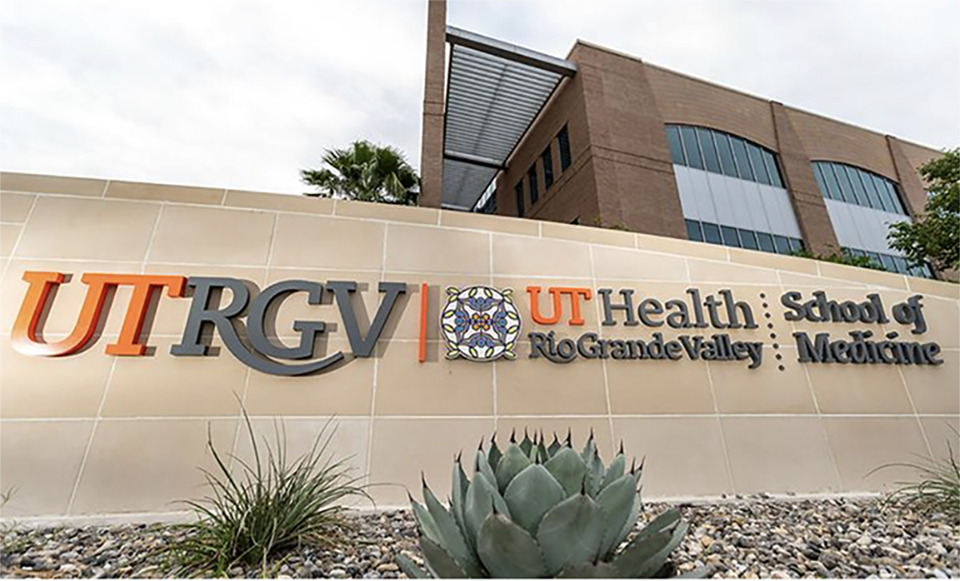
(UTRGV Photo by David Pike)
News Release | Health

(UTRGV Photo by David Pike)
Wednesday, May 22, 2024
Health, Community
By News and Internal Communications
RIO GRANDE VALLEY, TEXAS – MAY 22, 2024 – Every May, advocates and supporters come together to encourage open dialogue, support and access to resources for those facing mental health challenges in communities around the world.
Since 1949, Mental Health Awareness Month has worked to destigmatize the notion that struggling with mental health is something to be ashamed of or hidden.
The National Alliance on Mental Illness (NAMI) reports that one in five adults will experience mental illness each year, but only half of those affected will receive treatment.
Dr. Alcides Amador, board-certified psychiatrist at UT Health RGV and assistant professor in the UTRGV School of Medicine, said Mental Health Awareness Month provides an opportunity to reflect on the importance of mental health in our lives.
“In some cultures, talking about mental health is not common, and mental health symptoms such as depression and anxiety might be considered a moral failing or weakness of character,” he said. “This might make people hesitant to bring up their mental health.” 
The Substance Abuse and Behavioral Health Services Administration reports that just 36% of Hispanics receive mental health services.
In the Rio Grande Valley, where the roughly 90% of the population is Hispanic, it’s hard to escape the prevalence of the “no pasa nada” (“there’s nothing wrong”) mindset.
Mental health issues often are waved off as simply passing emotions or dismissed entirely, perpetuating the belief that seeking help for mental health concerns is unnecessary or even shameful.
Amador said work still has to be done to eliminate the associated stigmas of seeking help.
“Mental health doctors can recommend and provide psychotherapy, or ‘talk therapy,’ options for patients,” he said. “Talk therapy is an important part of mental health treatment. Medication alone will not get to the bottom of what may be the cause of someone’s mental health symptoms.”
Too often, misconceptions about mental health prevent individuals from seeking the help and support they need.
“Patients often don’t seek help for fear of being overly prescribed daily medication,” Amador said, “which is not necessarily the case.”
EXERCISING THE MIND
Regular checkups are an essential part of maintaining mental health and should be thought of as exercising the mind, Amador said. These visits can help identify any emerging issues and support overall psychological wellness.
“Getting your mental health evaluated should be thought of as routine as getting an annual wellness check with your primary care doctor,” he said. “Similarly to how you would get a checkup with your physician if you are feeling physically tired or noticing an increase in blood pressure, getting your mental health checked out when you are dealing with stress that is preventing you from enjoying life can help decrease the chance of that developing into something worse, such as depression.”
Amador said small changes in lifestyle often can lead to significant improvements in mental health. Adjustments to diet, exercise and sleep are essential in maintaining good mental health.
“People who exercise regularly have lower rates of mental health conditions,” he said. “Diet is also important. For example, people with depression are at higher risk of having vitamin D deficiency, so making sure to get your daily recommended amount of vitamins could help decrease your risk of developing depressive symptoms.”
Above all, Amador said, it’s important to take some time to reflect on our mental well-being and prioritize self-care.
“If you’re feeling stressed or anxious, don’t be afraid to reach out for help,” he said. “Early prevention is key to mitigating the escalation of mental health challenges and ensures proper support can be provided.”
To obtain more mental health tips or schedule a mental health checkup, visit UTHealthRGV.org.
ABOUT UTRGV
The University of Texas Rio Grande Valley (UTRGV) was created by the Texas Legislature in 2013 as the first major public university of the 21st century in Texas. This transformative initiative provided the opportunity to expand educational opportunities in the Rio Grande Valley, including a new School of Medicine and a School of Podiatry, and made it possible for residents of the region to benefit from the Permanent University Fund – a public endowment contributing support to the University of Texas System and other institutions.
UTRGV has campuses and off-campus research and teaching sites throughout the Rio Grande Valley including Brownsville (formerly The University of Texas at Brownsville campus), Edinburg (formerly The University of Texas-Pan American campus), Harlingen, Weslaco, McAllen, Port Isabel, Rio Grande City and South Padre Island. UTRGV, a comprehensive academic institution, enrolled its first class in the fall of 2015; the School of Medicine welcomed its first class in the summer of 2016, and the School of Podiatric Medicine in the fall of 2022.